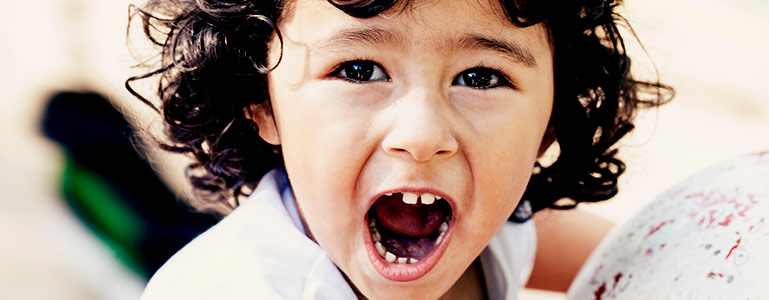Yep, I used the word ‘rage.’ You know exactly what I mean if you have a young child who has trouble handling their strong emotions and ends up screaming, melting down, and hitting you, your partner, your nanny or caregiver, or, most mortifying of all, grandma.
Children who explode with anger can be aggressive and very difficult to manage, which is often distressing and scary for parents. Once the anger dissipates and children calm down, they might be remorseful, snuggly, sad, or just go back to playing as if nothing happened. Dealing with child rage is often this wild roller coaster of emotions that can drain and exhaust us as parents.
Why Does Your Child Rage?
Before we talk strategies, let’s look at what’s underneath the explosions. First, a child is trying to communicate that something isn’t right in their world. Being a young child can be quite frustrating. The brain is growing faster than the body and they firmly believe they should be able to do anything and everything that crosses their mind. In addition, some children try to perfectly control the world around them, and when they can’t, rage might result. A broken cracker may result in a complete melt down for this type of child.
Parents and teachers of young children may prefer that a child communicate these frustrations in a calm and rational way, but that’s a higher order skill that comes with later brain development. In fact, even though a child may learn the difference between ‘right’ and ‘wrong’ at a young age, they will still not be able to fully control their impulses, nor self-regulate without help, before the age of 6 or 7 years.
Stay Calm When Child Rage Arises
So, what can we do to help our young children learn to manage their rage? First of all, stay calm. It’s no use fighting anger with anger. At least one of you needs to manage your strong emotions and unfortunately, that responsibility falls on the adult in the room.
Approach or Withdraw From Child Rages?
Try stepping back and looking at your child from an anthropological point of view. Hmm. Interesting. The child is experiencing rage. Then, ask yourself this very useful question: “Do I approach or withdraw?” If you have a hitter or a biter, don’t get too close. Imagine a cat backed into a corner. If you approach, you will be scratched. Back up, but stay nearby in case you are needed for safety reasons.
If the situation is safe to approach, consider these 11 Tips for Handling Your Child’s Anger.
Teach Coping Skills for Anger in Youth
Reflect on whether or not your child has access to a coping skills toolbox for anger. Have you taught them how to express anger productively? If you haven’t explicitly taught them how to manage these strong emotions, they will just mimic whatever you do when you get upset. If you raise your voice, they will raise their voice. If you slam doors, they will slam doors. What coping skills do you want them to use when they get angry? That’s what you need to model and teach. (And I know you’d prefer that they not get angry, but unfortunately, that’s not a choice!)
Teach them some alternative ways of communicating their rage, usually involving some sort of physical response. Some examples of coping skills for anger include: stomping, pounding the floor, clenching and unclenching fists, pounding one fist into the other hand, or hurling soft balls at the wall.
Create an Environment to Help Child Rages
Look around at your environment. Do you have a velcro dart board? Some squeeze balls? Silly putty? A gym mat in the corner? A mini trampoline with a holding bar? When a kid rages at school, do you have a cozy, regrouping spot in the corner of your classroom or play area with large pillows or a bean bag chair where your child can retreat and recover? Since children are limited in their ability to control impulses or strong emotions, it’s up to us to create environments that help them cope with their anger.
Take Care of Yourself
When you have a child who rages, it’s critically important that you find ways to take breaks from parenting them. Intense children (and adults) can be driven, creative, and brilliant, but they can also drain and exhaust you. Make sure you’re taking care of your own needs for social interactions, exercise, date night, and sleep. If you’re not well-rested, you won’t be able to successfully manage the highs and lows of parenting an emotional child.
Get Help When You Need It
And remember, if you need help dealing with child rages, reach out to Parents Place at the Center for Children and Youth. Our parent coaches are ready to support you on this bumpy, wonderful, exhausting yet joyful parenting journey.
Heidi Emberling, MA, is an early childhood educator and child development specialist.



